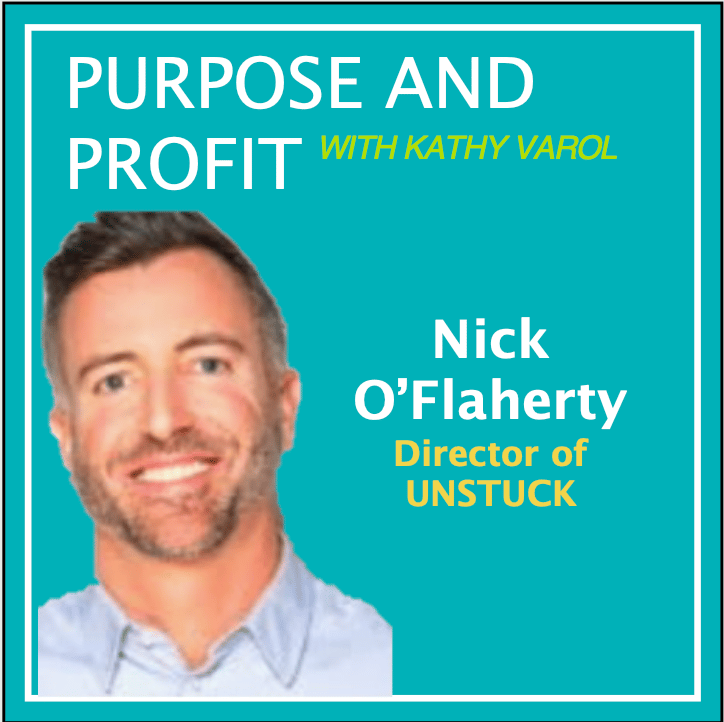Show Notes:
Nick O’Flaherty is the director of UNSTUCK, a nonprofit that partners with businesses, harnessing the power of the market and leveraging global supply chains to create sustainable change.
UNSTUCK is the Tent Partnership for Refugees’ first consumer-facing initiative. UNSTUCK generates job opportunities for refugees by working with brands to develop products made with ingredients that are sourced from suppliers hiring refugees. The more products a brand sells, the more ingredients they source, the more jobs for refugees that are created. These are legal jobs that rebuild families and communities while providing dignity and financial security through work. Rather than the traditional “donating a share of profits” approach, UNSTUCK brands can create more inclusive societies by rethinking where they source from. The impact they make is sustainable – because it’s a part of their everyday business.
If you would like to learn more about how your company can leverage its supply chain to help refugees and other vulnerable communities, Nick would love to hear from you. Email him here.
In this episode we discuss:
- A shift from philanthropy to scalable, business integrated change
- The estimated economic benefit Venezuelan refugees will bring to Colombia
- How a partnership with UNSTUCK can support your diversity and inclusion efforts
- Target host countries to integrate refugees into your global supply chain
Key Takeaways:
- Having a unifying goal across a supply chain, rooted in a higher-order emotional benefit, can transform the relationship between brands and suppliers. When you’re not only working to create a great product, but you’re also partnering to transform lives and build communities through economic empowerment, the conversation changes. Both engagement and collaboration increase.
- Often conversations around refugees are rooted in a scarcity mindset—a fear that refugees will take jobs and resources, and hurt the livelihood of locals. As a result, oftentimes refugees are isolated in refugee camps and not given the right to work. With the duration of displacement of refugees increasing to an average of 20 years, isolation is a huge loss for the refugees as well as the host countries. Colombia is pioneering a new model for integrating migrants and refugees, granting them protection status for 10 years, the right to access formal employment, and access to essential services. Colombia’s approach to the Venezuelan humanitarian crisis is a human approach that’s also a good economic decision. This approach not only reduces their dependency on international humanitarian assistance, but is also expected to contribute to the country’s post-COVID recovery and future economic growth. Remember, a rising tide lifts all boats. Scarcity is rooted in fear and closes us off from innovating new and better ways of doing things, but openness creates limitless opportunities through collaboration.
Note: this episode was recorded in February 2022, before the Russian invasion of Ukraine.
References:
- Tent Partnership for Refugees
- UNHCR article on hiring refugee hiring programs by brands such as Sodexo and IKEA
- Ben & Jerry’s Ice Academy

